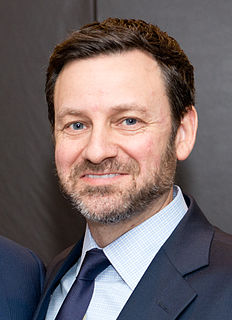A Quote by Stevie Wonder
I know that there'll be a continuation of making the world more accessible for people with disabilities.
Quote Topics
Related Quotes
I like the iPhone, the iPad, all the various members of that family. But I like all the various technologies that are becoming available to make the world more accessible to people who are blind and with low vision. I also like that more and more people are committing themselves to close captioning so the deaf can really know what's going on. I like the position of making buildings more accessible by having ramps and various ways people who are paraplegic to be able to get around.
In the industrial world we have the problem of having more productive capacity than we know what to do with. That's at the root of the unemployment crisis: we've got so productive at making things, we don't require people to be involved in making the basics of life any more. Or nearly as many people.
A lot of society tries to put people with disabilities into one cube, and when you think about it, many, many people have different types of disabilities, and you cannot put a code that applies to towards everyone - generally, they can be guidelines, but in the long run, interior designers and architects need more education on the subject.
A lot of society tries to put people with disabilities into one cube, and when you think about it, many, many people have different types of disabilities, and you cannot put a code that applies towards everyone - generally, they can be guidelines, but in the long run, interior designers and architects need more education on the subject. That's what's missing.
New information and communications technologies can improve the quality of life for people with disabilities, but only if such technologies are designed from the beginning so that everyone can use them. Given the explosive growth in the use of the World Wide Web for publishing, electronic commerce, lifelong learning and the delivery of government services, it is vital that the Web be accessible to everyone.
As much as I've been blessed to do, this is for me when I want to do what I really want to do as far as helping people. Obviously helping people with disabilities, I want - my desire is to in my lifetime be a very integral part of getting this country and the world completely accessible to everyone with any disability. There should be nowhere that we can't go, and there should be nothing that we can't do. Considering that we have the disability, whichever one it might be, we will be so on point with being able to do that we need little to no assistance.

































